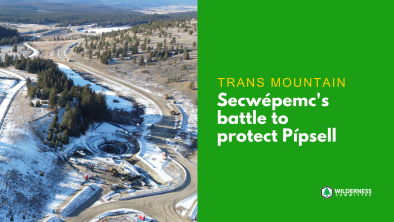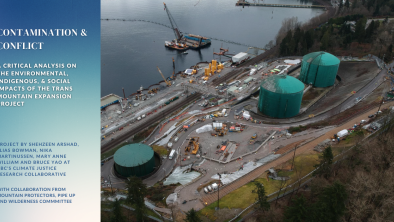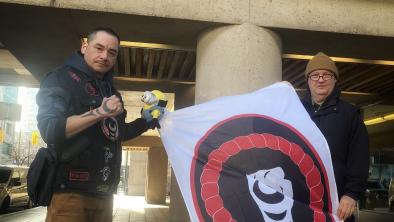McKenna asks Canadians to “Trust us”
The Eco Report
The first meeting of what Environment Minister Catherine McKenna calls our “pan-Canadian team on Climate Change” is now over. She has been closeted with environmental ministers from the provinces and territories, McKenna called it “the most positive meeting that has taken place in a very long time. Though short on details, the Minister said “We all know we have to act together”and alluded to “real opportunities” in the clean tech sector. To distill her message down to the two words which she did not actually use, McKenna asks Canadians to “trust us.”
More Needs To Be Done
“During our meeting we looked at the projection of Canada’s greenhouse emissions in 2020 and 2030. The data is clear and confirms that more needs to be done to close the gap between where we are today and where we need to be,” said McKenna.
She emphasized, “Canada’s prosperity must be built on the principal that the economy and environment go hand in hand. We are all committed to building a more sustainable economy that will benefit all Canadians, from coast to coast to coast.”
$12.1 trillion dollars of business opportunities
Citing Bloomberg’s prediction of $12.1 trillion dollars of business opportunities arising from the COP 21 agreement, McKenna said this is “a huge opportunity for Canada and Canadian companies.”
Merran Smith, executive director of Clean Energy Canada, agrees, “Canada can reduce carbon pollution by transforming how we produce and use energy, and create big opportunities for new investment and new jobs in the process. We need to focus less on what we have to cut and more on what we can build—a prosperous, resilient and nimble economy that’s powered by clean energy.”
Pipeline Projects
Those hoping for an end to projects like the proposed Trans Mountain pipeline expansion will be disappointed. McKenna reaffirmed five principles the government announced three days ago:
1. No project proponent will be asked to return to the starting line — project reviews will continue within the current legislative framework and in accordance with treaty provisions, under the auspices of relevant responsible authorities and Northern regulatory boards;
2. Decisions will be based on science, traditional knowledge of Indigenous peoples and other relevant evidence;
3. The views of the public and affected communities will be sought and considered;
4. Indigenous peoples will be meaningfully consulted, and where appropriate, impacts on their rights and interests will be accommodated; and
5. Direct and upstream greenhouse gas emissions linked to the projects under review will be assessed.
Mixed Reactions to the Conditions
There have been mixed reactions to these conditions:
Ian Anderson, president and CEO of Kinder Morgan Canada, was concerned about the resulting delays to his schedule, but said “We support the principle that public confidence in the review process is crucial and look forward to working with the Government of Canada on how our years of work in the area of consultation will be considered.”
“This is an important step forward, but the most significant climate impacts – the ones that occur when the fuels are burned – still aren’t being considered. New LNG terminals and tar sands pipelines like Kinder Morgan’s are incompatible with a livable climate. A true climate test would leave regulators with no choice but to reject these projects,” said Peter McCartney, Climate Campaigner at the Wilderness Committee.
“I’m disappointed. It’s far less than I hoped for. It didn’t meet what (Prime Minister Justin Trudeau) said during the campaign. … What we’ve got now is a delay for six months, but in essence, he’s only continued to support the arrogance of the NEB (National Energy Board) by, in essence, endorsing them, as has his minister. I think Trudeau is going to find very quickly the bloom is of the rose,” said Burnaby mayor Derek Corrigan.
Kinder Morgen’s Trans Mountain pipeline ends in Burnaby. In 2007, an excavator accidentally ruptured the pipeline and released 232,000 litres of bitumen into a residential neighbourhood. Two year later, an estimated 200,000 litres leaked out from Kinder Morgan’s storage facility. Polls have found that 70% of Burnaby’s residents oppose a proposed expansion of the pipeline. More than 100 were arrested during the demonstrations prompted by the pipeline company’s studies in a city of Burnaby park.
David Suzuki asked,”Why are politicians contemplating spending billions on pipelines when the Paris commitment means 75 to 80 per cent of known fossil fuel deposits must be left in the ground?”
McKenna Asks Canadians To “Trust Us”
McKenna stressed that the feds will be holding more meetings with the provinces, “This is the first time in a decade that the Federal Government is sitting at the table with the provinces and territories to take serious action to tackle Climate Change and grow our economies. We just finished a very constructive day and a half long meeting, where we have taken stock of the challenge ahead and discussed how we can work together to support clean growth across Canada, while reducing our emissions.”
Photo: Vancouver Climate March 2015 (Aimee MacDonald)


